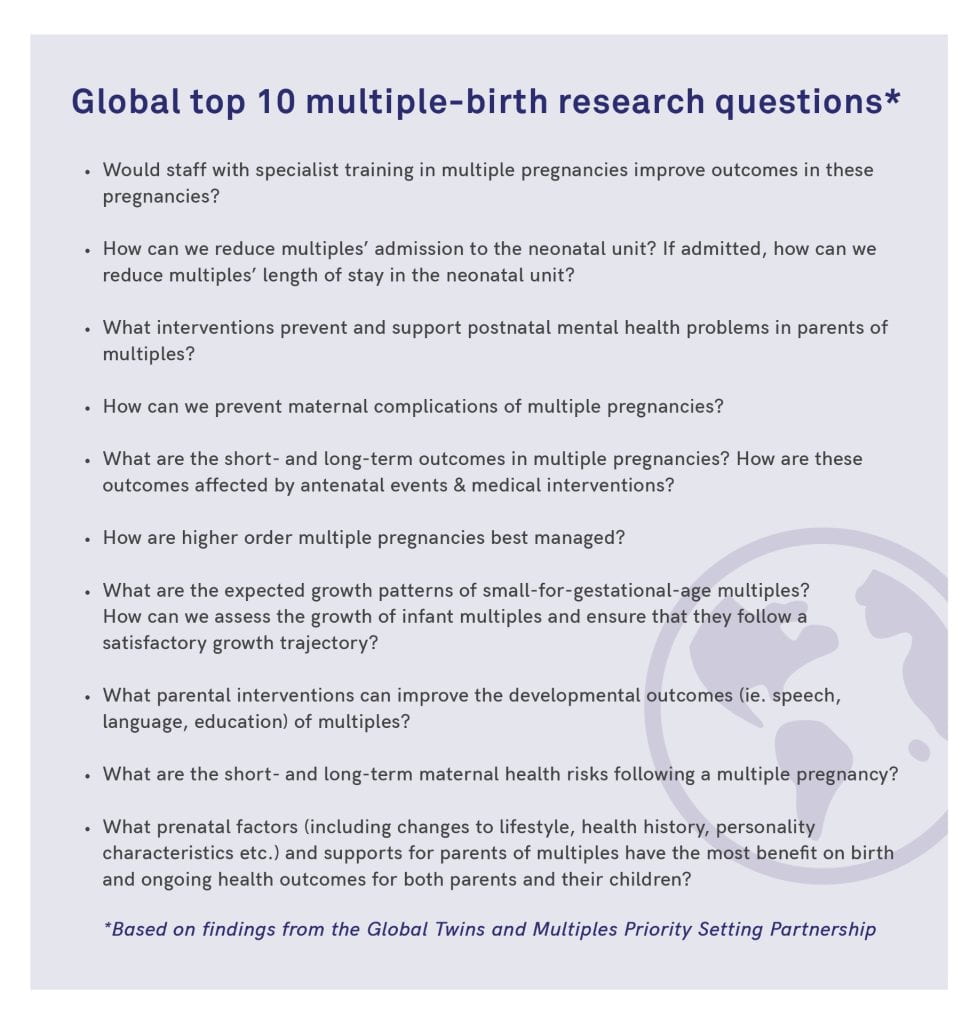
Multiple-birth experts from around the world have identified where urgent research is needed to improve health outcomes for twins, triplets and higher-order multiples.

In a world-first initiative, supported by Twins Research Australia, a paper published today outlines the top 10 global research priorities for multiple-birth health and how these priorities were chosen from wide-ranging suggestions across 31 countries.
“The number of multiple births – twins, triplets and above – has increased dramatically around the world over the past 40 years,” said lead researcher, Professor Asma Khalil from the Fetal Maternal Medicine Unit at St George’s University, London.
“This is mainly due to the increasingly widespread use of assisted reproduction techniques and to the older age of mothers at conception.”
According to Professor Khalil, a multiple-birth pregnancy can bring great joy and excitement, but it can also bring unique challenges compared to a singleton pregnancy. She is concerned these issues are not being given sufficient attention globally.
“Multiple pregnancies are disproportionately represented in stillbirths, neonatal deaths and cerebral palsy around the world,” she explained. “It is also well established that parents of multiples are at risk of mental health issues after birth and in early parenting.
“Raising multiple infants of the same age also puts parents at an economic disadvantage.”
To drive more action in addressing these issues, a Global Priority Setting Partnership has been formed by multiple-birth experts, and community, research and education organisations. Leading the collaboration are: Twins Research Australia based at The University of Melbourne, Twins and Multiple Births Association UK, and St George’s University of London.
“The project partners understand more collaboration and research is needed to better understand these issues – but what are the areas needing the most urgent attention?” Professor Khalil said.
“We wanted to find out from people at the coal-face: What mattered most to them? Where would they like to see more research undertaken?”
To do this, the partnership appealed globally to twins, parents of twins, clinicians, health professionals, and researchers to undertake an initial survey. This survey asked them to identify their most pressing unanswered questions relating to multiple-birth health.
In response, over 1100 participants from 31 countries suggested a wide-ranging 2891 questions. A rigorous process – including a further survey and workshop – then narrowed down the questions to a final top 10 (see full list below).
“We were delighted with the response and we thank all the people from many backgrounds and countries who participated,” Professor Khalil said.
“Our final top 10 questions point to the most pressing issues being in the areas of clinical care for multiple-birth babies and mothers, and psychological health and social supports for parents,” she said. “This includes care during and beyond pregnancy for the short and long-term.”
We now know the important questions – but how will they be answered?
“The priorities identified in our paper provide researchers with a clear focus for future research,” Professor Khalil said. “The next step will see researchers and multiple-birth agencies working together – within their specific countries as well as globally – to seek funding to enable these studies to happen – and to happen quickly.
“Evidence-based findings from our research, in turn, can guide future directions in multiple-birth education and training, health care and practices, and government support and policies.
“Ultimately we hope these questions can be translated into action to benefit the wellbeing of multiple-birth families around the world, now and for the future.”
If you would like to comment further or learn more about the project, please email us at info@twins.org.au or join the conversation at our Facebook, Twitter, Instagram and LinkedIn.

Diagram below: Flowchart of the priority-setting process for global multiple-birth family health research


